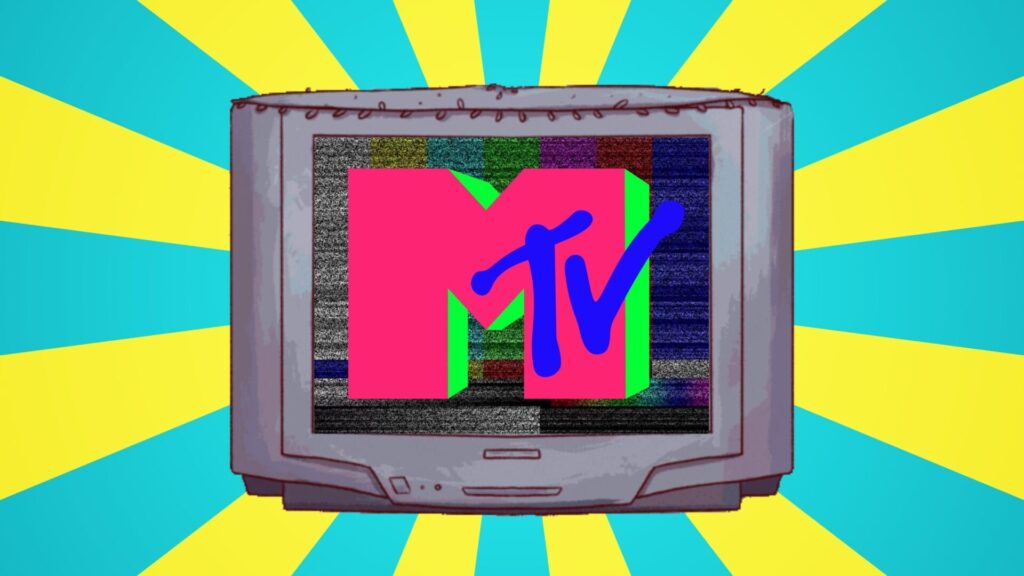Remember the days when MTV stood for something more than just reruns of “Ridiculousness”? Back in the 80s and 90s, it was the ultimate destination for music lovers, a channel that blasted music videos 24/7 and launched the careers of countless iconic artists. But somewhere along the way, the music faded, replaced by the drama and chaos of reality TV. So, what happened to MTV? Let’s rewind the tape and explore the fascinating – and sometimes frustrating – evolution of this music television giant.

The Video Killed the Radio Star, But What About MTV?
Imagine a world before YouTube, before music streaming services. Back in 1981, MTV burst onto the scene like a bolt of lightning. It was a revolutionary concept – a channel dedicated solely to music videos. Remember the iconic intro with the moon landing and the words, “Ladies and gentlemen, rock and roll”? Pure magic. VJs, like the charismatic Martha Quinn and the ever-stylish J.J. Jackson, became household names, introducing us to new music and guiding us through the MTV landscape.
The Golden Age: When Music Videos Ruled the Airwaves
The 80s and early 90s were MTV’s golden age. Music videos weren’t just about showcasing the song; they were mini-movies, pushing boundaries and becoming cultural touchstones. Think Michael Jackson’s groundbreaking “Thriller,” Madonna’s controversial “Like a Prayer,” or Guns N’ Roses epic “November Rain.” MTV became a platform for artistic expression, a place where music and visuals collided to create something truly unforgettable.
Beyond the Music: Diversifying the Lineup
But MTV wasn’t just about music videos. Shows like “Headbangers Ball” catered to the headbanging metalheads, while “Yo! MTV Raps” brought hip-hop to the forefront. Alternative music found a home on “120 Minutes,” and animated shows like “Beavis and Butt-Head” offered a dose of absurdist humor. MTV was a melting pot of music and pop culture, a place where you could discover something new every time you turned it on.
The Reality Bites: A New Era Dawns
Then came the mid-90s, and a seismic shift began. Reality TV, a genre still in its infancy, started creeping into MTV’s programming. Shows like “The Real World,” which documented the lives of strangers living together, became a surprise hit. Suddenly, the drama of everyday people (well, maybe not so “everyday”) seemed to resonate more with audiences than the latest music video.
Why the Shift? This is a question that has been debated for years. Some argue that music videos became too expensive to produce, while others point to the rise of alternative music channels like VH1 and Fuse. Perhaps, the constant stream of music videos lost its novelty. Whatever the reason, reality TV became a ratings juggernaut, and MTV, ever the trendsetter, followed the money.
The Rise of the Reality juggernaut: From Road Rules to Jersey Shore
The floodgates were open. Shows like “Road Rules,” “The Osbournes,” and the infamous “Jersey Shore” dominated the airwaves. These weren’t exactly documentaries about the human condition; they were more like social experiments gone wrong (or gloriously right, depending on your perspective). While some might argue it cheapened the MTV brand, there’s no denying these shows were addictive and kept viewers glued to their screens.

A Shadow of Its Former Self?
Today, MTV is a far cry from the music video powerhouse it once was. Music videos still air occasionally, but they’re overshadowed by reality shows and dating programs. Some might say MTV lost its soul, its identity. Others might argue it simply adapted to the changing tastes of its audience.
The Legacy of MTV: More Than Just Reality TV
Regardless of its current state, MTV’s legacy is undeniable. It revolutionized the music industry, launched countless careers, and gave us some truly iconic moments in pop culture history. It was a breeding ground for creativity, a place where music and rebellion walked hand-in-hand.
Conclusion: A Changing Landscape
MTV’s story is a reflection of the ever-evolving media landscape. It embraced new trends, took risks, and sometimes stumbled along the way. Whether you miss the days of headbanging to metal or find yourself weirdly invested in the latest dating show, there’s no denying MTV’s impact. It may not be the music video giant it once was But that doesn’t mean MTV’s story is over. With the rise of streaming services and changing viewing habits, the channel is once again facing a crossroads. Perhaps it will find a way to reinvent itself, to recapture the magic of its early days while adapting to the digital age. Maybe it will embrace online platforms and short-form content, becoming a destination for music discovery once again.
Read Also
- 8 Facts You Didn’t Know About the Powerful Yoruba Empire
- What Happened to Yahoo? From Internet Pioneer to Fallen Giant
- “The Ex Vows” by Jessica Joyce
- What Happened to Blackberry? The Rise and Decline of a Mobile Giant
- Are You a Robot? History of Those Annoying CAPTCHAs!
Frequently Asked Questions (FAQs)
Here are some of the most commonly asked questions about MTV’s transformation:
1. Why did MTV stop playing music videos?
There isn’t one single reason. Factors like the rise of reality TV, the high cost of music video production, and the emergence of alternative music channels all likely played a role.
2. What was the first reality show on MTV?
“The Real World,” which premiered in 1992, is considered one of the first reality shows to achieve mainstream success.
3. What are some of MTV’s most iconic music videos?
There are countless to choose from, but some of the most influential include Michael Jackson’s “Thriller,” Madonna’s “Like a Prayer,” Guns N’ Roses’ “November Rain,” Nirvana’s “Smells Like Teen Spirit,” and Beyoncé’s “Single Ladies.”
4. What are some of MTV’s most popular reality shows?
The list is long, but some of the most talked-about shows include “The Real World,” “Road Rules,” “The Osbournes,” “Jersey Shore,” and “Teen Mom.”
5. What’s the future of MTV?
The future remains uncertain. However, with the ever-changing media landscape, MTV might need to find innovative ways to integrate music and cater to younger audiences through online platforms and short-form content creation.
So there you have it, a glimpse into the remarkable transformation of MTV. From the days of groundbreaking music videos to the era of reality TV domination, MTV’s journey is a testament to the ever-evolving world of entertainment. Whether you yearn for the days of “Headbangers Ball” or find yourself hooked on the latest dating show drama, MTV’s impact on pop culture is undeniable. It may not be the music video giant it once was, but its legacy as a platform for creativity and a reflection of changing trends will continue to resonate for years to come.


